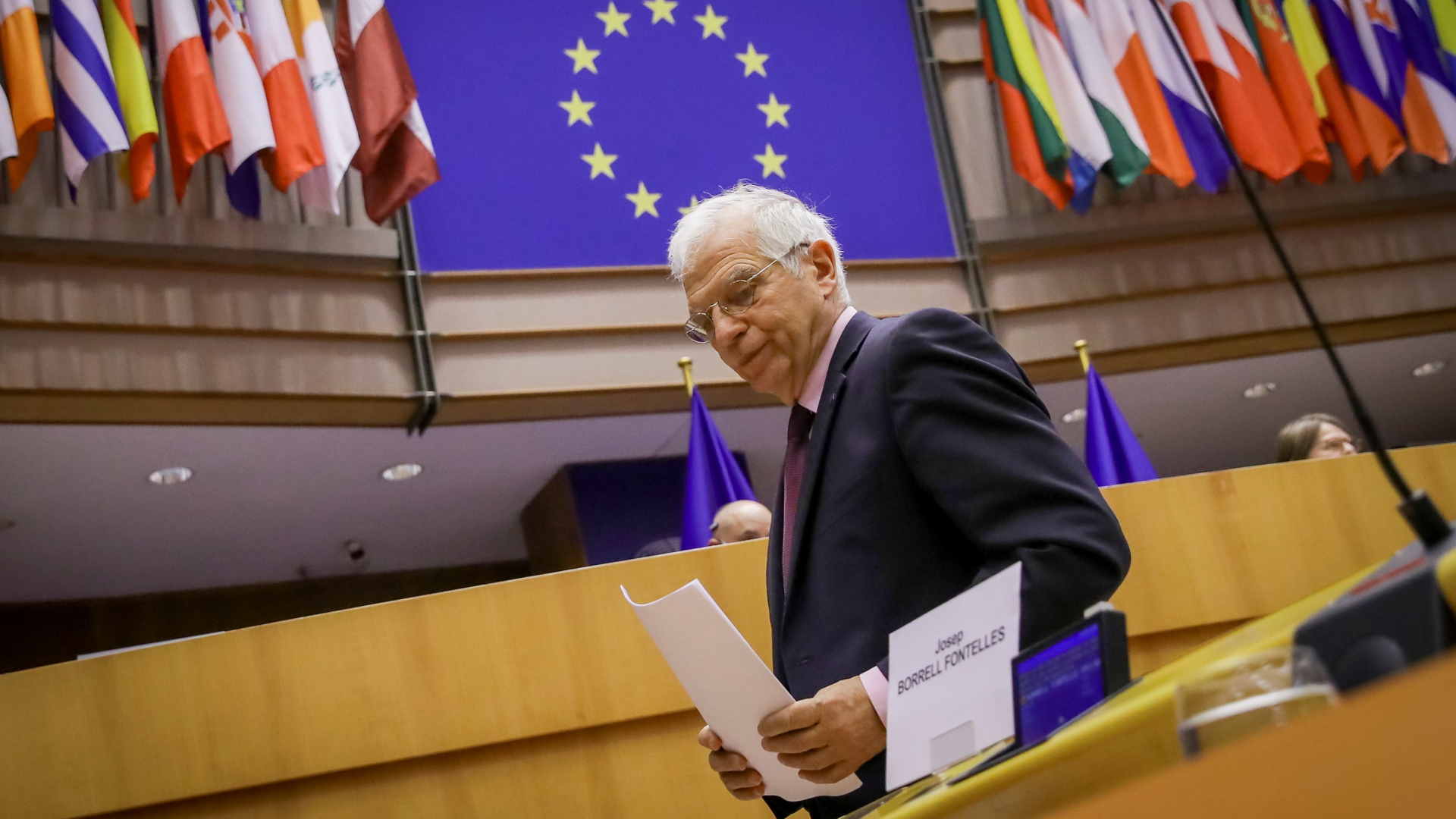Status: 21.06.2021 4:59 a.m.
–
–
–
The foreign ministers of the EU states want to punish the regime in Minsk. A corresponding package is available. The future dealings with Russia are still being negotiated.
From Helga Schmidt,
ARD studio Brussels
–
–
–
Europe’s foreign ministers agree – the forced diversion of a Ryanair plane and the subsequent arrest of the journalist Roman Roman Protassewitsch, who is critical of the regime, are said to have tangible consequences for the Belarusian head of state Lukashenko. After the European airspace was blocked for Belarusian aircraft, it is now a matter of targeted sanctions against the Belarusian economy.
Helga Schmidt
ARD studio Brussels
–
–
–
–
–
Commercial transactions are to be restricted or banned entirely – in areas that are at the core of the Belarusian economy. This applies to oil and gas production, potash and phosphate production and also tobacco products. The sanctions are intended primarily to affect state-owned companies and thus significantly reduce the income of the Lukashenko regime. At least that is the topic at the EU foreign ministers’ meeting. Sanctions in the financial sector were initially controversial. Austria wanted to prevent them because Austrian banks are heavily involved in Belarus. At the end of last week, the government in Vienna switched to the sanctions course of the partners. This could prevent EU banks from helping Belarus take out loans.
Tichanovskaya calls for targeted sanctions
The EU ambassadors were also able to reach a consensus before the foreign ministers’ meeting on a sanctions package with entry bans and asset freezes. The punitive measures are directed against 78 representatives of the regime and organizations in the vicinity of Lukashenko. The EU blames them for the brutal crackdown on the opposition and, most recently, for the forced diversion of the Ryanair plane. Such punitive measures against individuals are, however, controversial. From the point of view of critics, they are more of a symbolic character, the Belarusian elite prefer to orient themselves towards Moscow, they say, they invest their money there.
On the other hand, the Belarusian opposition leader Svetlana Tichanovskaya believes the individual sanctions are correct. Those responsible should not get away with it, she told the “FAZ” last week. However, punitive measures against the economy are the most important sanctions. “They must, however, be directed very precisely against the state enterprises that fill Lukashenko’s purse,” demands Tichanovskaya. She considers sanctions to be particularly effective in the wood and metal industries and in the export of petroleum products “wherever the state has a monopoly”. An exchange with the opposition leader is planned at the EU foreign ministers’ meeting.
“Little concrete, little new”
The second major issue on the Luxembourg agenda, relations with Russia, is a controversial debate. Josep Borrell, the EU foreign affairs representative, set a deeply skeptical tone. “We have to prepare for even worse relations,” said the Spaniard at the end of last week when he presented a new Russia strategy for the European Union. The heads of state and government had asked him at the summit in May, they wanted a “report with political options”.
Borrell suggests three different thrusts. The EU must actively defend itself if Russia violates international law and human rights. In addition, the EU should curb Russian attempts to destabilize individual member states – with disinformation campaigns, cyber attacks or the manipulation of elections. As a third element, Borrell suggests keeping the channels open on topics such as disarmament and climate protection. The EU should actively seek cooperation with Moscow in such areas.
Borrell’s plan sparked cautious reactions in Brussels. “Little concrete, little new” criticize EU diplomats. France is likely to be too gloomy for Borrell’s approach. President Macron has stressed several times that Russia is a neighbor of the EU and that there must be constructive relations with one of the neighbors. Despite all the criticism of human rights violations, Paris wants to focus more on the positive aspects of relations between Russia and the EU, said an EU diplomat. What that could be – the French Foreign Minister in Luxembourg is expected to provide specific information on this. Speaking with one voice in the direction of Moscow is difficult for Europeans because there are different interests. Unlike France, for example, countries like Poland and the Baltic states are calling for a tougher course against Putin.
EU foreign ministers plan economic sanctions against Belarus
Helga Schmidt, ARD Brussels, June 21, 2021 5:42 am
–
–
–


